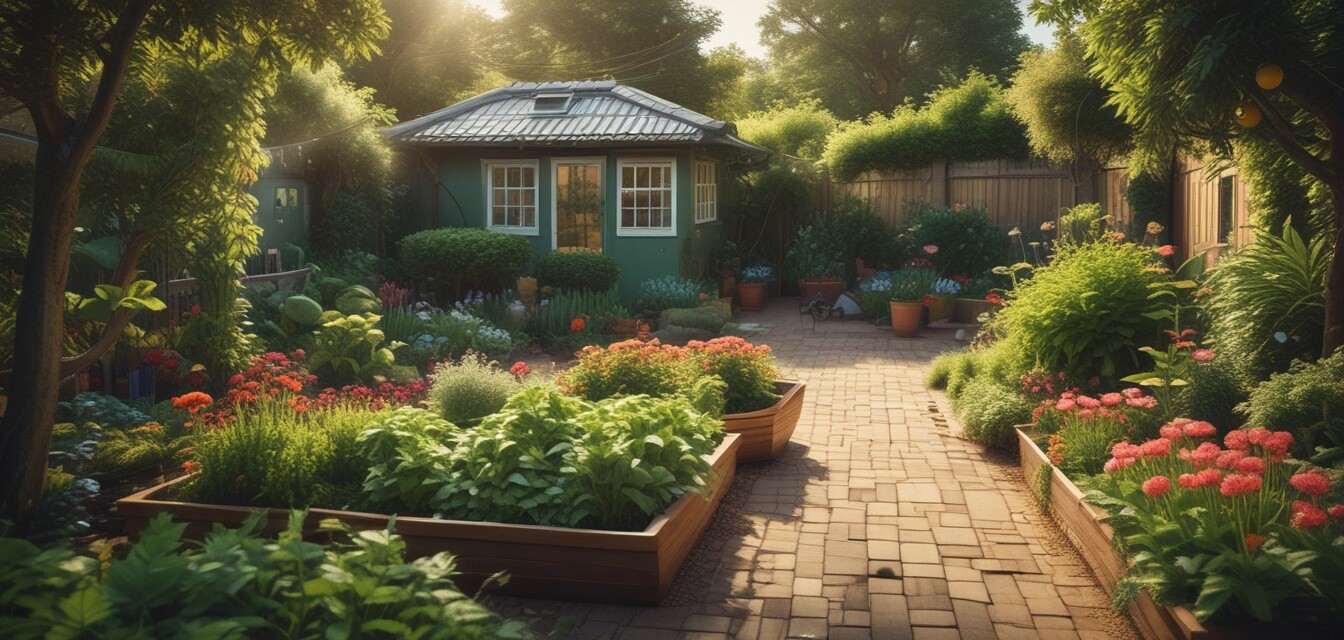
The benefits of sustainable gardening in 2025
Key Takeaways
- Sustainable gardening enhances biodiversity and supports local ecosystems.
- Utilizing eco-friendly materials helps reduce waste and pollution.
- These practices yield healthier plants and crops, promoting food security.
- Innovative techniques in 2025 emphasize water conservation and efficient resource usage.
- Community involvement in sustainable gardening enriches social ties and local environments.
As we move into 2025, the growing importance of sustainable gardening practices becomes increasingly paramount. With climate change concerns and urbanization on the rise, sustainable gardening is more than just a trend; it’s a way to enhance both our environments and our lives. This article delves into the multitude of benefits that sustainable gardening can offer to individuals, communities, and the planet.
What is sustainable gardening?
Sustainable gardening refers to gardening practices that are ecologically sound and that support the environment. It encompasses a variety of techniques that aim to minimize waste, conserve resources, and promote biodiversity.
Key benefits of sustainable gardening
| Benefit | Description |
|---|---|
| Environmental Protection | Reduces pollution and enhances local ecosystems. |
| Biodiversity Enhancement | Promotes diverse plant species that support various wildlife. |
| Soil Health Improvement | Encourages healthy soils through organic matter incorporation. |
| Water Conservation | Employs techniques to utilize water efficiently and responsibly. |
| Community Engagement | Builds connections among local gardeners, sharing tips and support. |
1. Environmental protection
Sustainable gardening avoids harmful chemicals and promotes the use of natural products. By choosing organic methods, gardeners can protect water sources and prevent soil degradation. A sustainable garden can also help mitigate some impacts of climate change by absorbing carbon dioxide.
2. Biodiversity enhancement
By planting a variety of plants, sustainable gardens foster diverse ecosystems. Different plants attract various pollinators and beneficial insects, creating a balanced environment that thrives without excessive human intervention.
3. Soil health improvement
Healthy soils are crucial for plant growth. Sustainable gardening practices, such as composting and mulching, enrich the soil with nutrients and foster beneficial microorganisms, leading to better plant health and increased yields.
4. Water conservation
In 2025, innovative irrigation systems are at the forefront of sustainable gardening. Techniques such as drip irrigation and rainwater harvesting minimize water use while ensuring plants receive the moisture they need.
Pros
- Reduces environmental footprint.
- Encourages healthier lifestyles with home-grown produce.
- Fosters community collaboration and skill sharing.
Cons
- Initial investment in materials and setups may be high.
- Requires continuous learning and adaptation.
Innovative techniques in sustainable gardening
As we venture further into 2025, gardeners are increasingly adopting advanced techniques that harness technology for sustainability. From smart irrigation systems that respond to weather conditions to vertical gardening setups that maximize space in urban areas, innovation plays a crucial role in shaping current practices.
Vertical gardening
This technique is especially beneficial in urban settings, where space is limited. Vertical gardens utilize walls for growing plants, maximizing space while enhancing air quality and aesthetics.
Permaculture principles
Integrated approaches such as permaculture design create self-sustaining ecosystems within gardens, enabling symbiotic relationships between plants and animals to thrive.
Natural pest management
Sustainable gardening incorporates natural pest management strategies, using beneficial insects and organic pest control methods to keep plants healthy without chemicals. This approach not only protects ecosystems but also fosters a healthy food supply.
Community involvement in sustainable gardening
Getting involved in community gardens can be a rewarding way to engage with others passionate about sustainability. These gardens often serve as educational hubs, providing opportunities to learn, share tools, and cultivate community spirit.
For more insights and strategies on sustainable gardening, visit our Buying Guides section for detailed resources.
Conclusion
In conclusion, the benefits of sustainable gardening are vast and impactful. As we embrace these practices in 2025 and beyond, we not only improve our immediate environments but also contribute to a healthier planet. Learn more about innovative gardening solutions to enhance your own outdoor space, and join the movement towards sustainability by exploring our comprehensive guides and products.
For ongoing updates about the latest trends in gardening, don't miss out on our News and Trends category to stay ahead in creating a beautiful outdoor space.